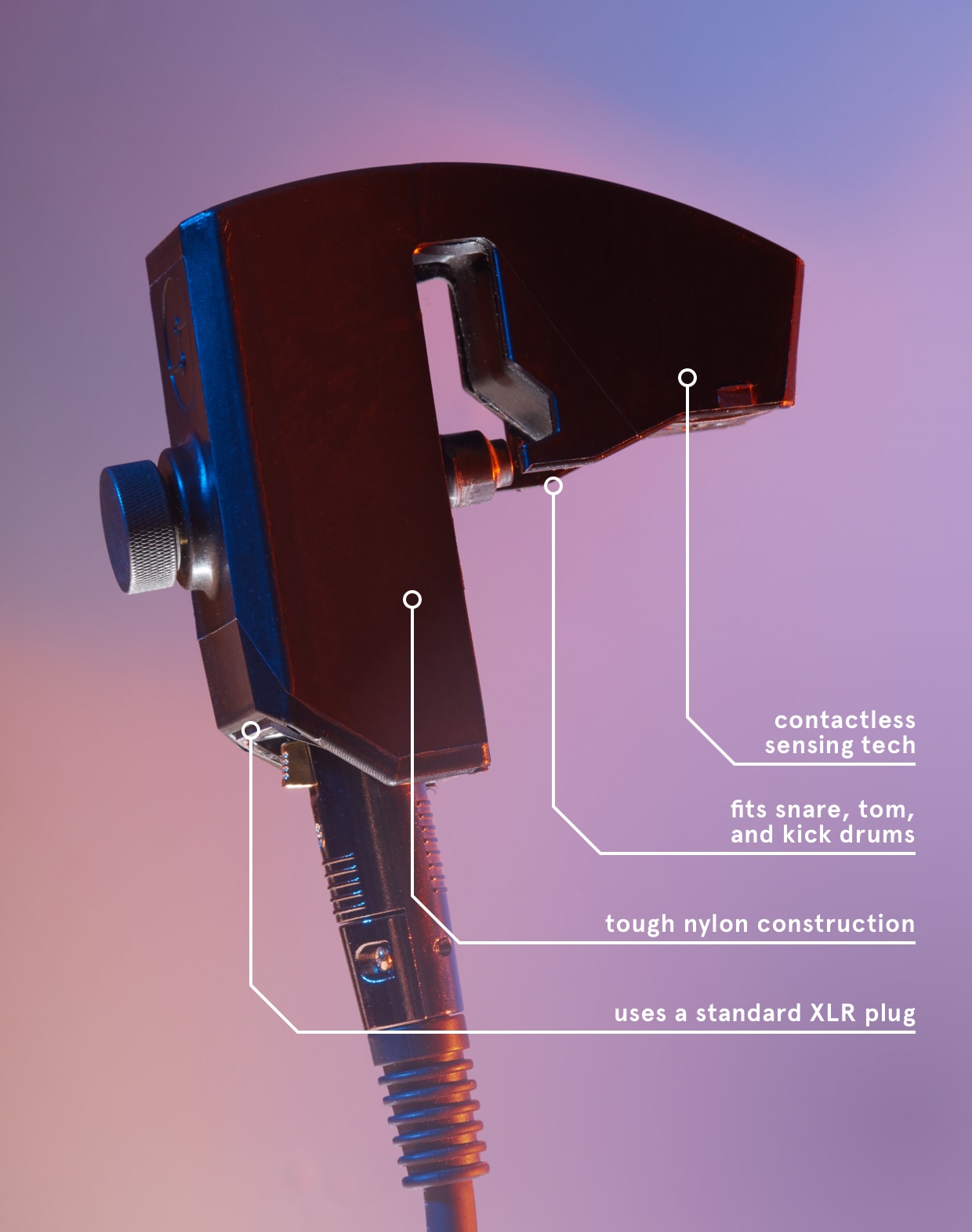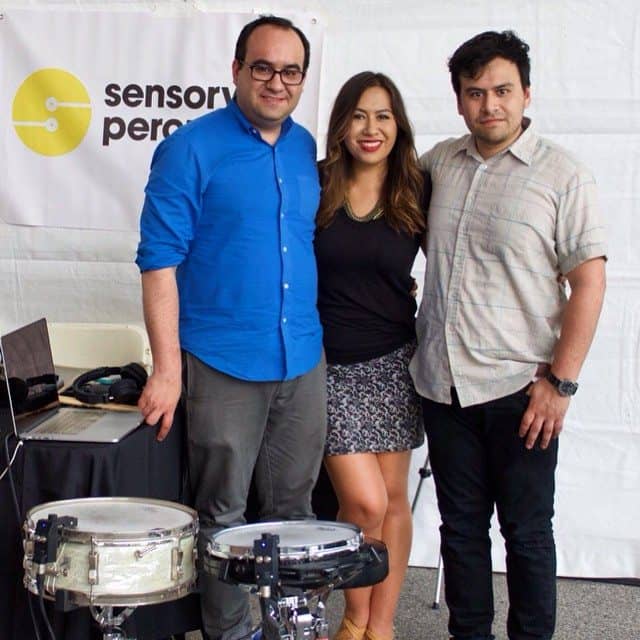For Tlacael Esparza, developer of drumming software Sensory Percussion, the journey to innovation and entrepreneurship began with a feeling of frustration with the status quo. A trained jazz drummer, Esparza spent his early career performing with indie bands in New York. This experience presented him with a quandary: increasingly, artists were incorporating electronic drums and samples into their process in the recording studio, but these sounds were nearly impossible for an acoustic drummer to replicate in a live performance. Esparza found that the majority of digital instruments designed for drummers, which were developed using 30 year-old technology, lacked the expression and dynamics of an acoustic drum. Whereas the acoustic instrument sounds different depending on where on its surface he hit it, using drum triggers and samplers was the equivalent of pushing a button that always produced the same sound. The result was a dull and dissatisfying experience for the nuanced performer.
In college, Esparza majored in pure math and music, and during a period of reflection and “burn out” from live performance, he decided to pursue graduate studies in Music Technology at NYU. This pivotal moment in his life helped him decide to take the ideas and frustrations he felt as a performer and turn them into a solution: a new software system called Sensory Percussion. Sensory Percussion provides a more nuanced method to use drums to trigger electronic samples. His system consists of a contactless sensor that listens to the vibrations that come out of acoustic drums and maps the drum’s surface. It then allows drummers to assign drum samples and parameters to different regions of the drum. The end result allows drummers to control a full range of electronic sounds with much more nuance and expressivity than previous versions of triggers or samplers with pads could achieve.
The path to creating Sensory Percussion – and its parent company, Sunhouse – wasn’t easy. Many business venture capitalists or entrepreneurs usually begin with an idea to make money, but not necessarily knowing how. The approach leads to studying ways to hedge risk, seek trends and find niches. But these skills are rarely taught to musicians or innovators in academia. As Esparza noted, “there aren’t that many companies in the music industry working with academia to create new products.” It makes sense – start ups are usually incubated with the vision to grow and make profit. The reality is that the music instrument industry is not as attractive to investors as others industries are.
Thankfully, Tlacael had the unconditional support of his friends and family to pursue his vision. Before founding Sunhouse, the company that developed Sensory Percussion, he reached out to his older brother Tenoch. Tenoch is a concert pianist-turned tech entrepreneur whose understanding of business and music made him the perfect candidate to join forces with Tlacael. Together, they put themselves through the rigorous process of turning an idea, one that many would consider extremely infeasible, into a start-up.

The brothers applied to a incubator program for NYU alumni and were accepted. Many programs exist to help launch new companies, and if you have a good idea, it’s a good place to start. During their time at Summer Launchpad, the brothers came in with the knowledge and drive to change the way acoustic instruments are used in the studio and during performances. Through this incubator, they were able to interview potential customers and prove that a market existed for a product like Sensory Percussion.
While Tlacael talks about his company with passion, he’s also extremely candid about the challenges involved in starting a business from nothing. He talks about how hard it is to get people to invest in startups that don’t guarantee a massive baked-in market or easy to understand concept. We agree that many young entrepreneurs would rather innovate on the way an established product is marketed versus creating a brand new product from scratch. He also points to the structural faults of the investment world, noting that a tech startup led by two Chicanos might face obstacles in attracting venture capitalists. The staggeringly low numbers of Latinos employed by Silicon Valley – especially at managerial and executive levels – can make it challenging for Latino-owned business to get their foot in the door. According to a study conducted by Stanford University, Latino-owned business are growing at a faster rate than any other group, yet receive the least amount of loans from national banks or the government.

When asked about his advice for young entrepreneurs, Esparza made sure to emphasize that it is not easy. You have to research the city you live in and the resources available for start-ups, he advises. It is important to understand your story as a company and to effectively communicate that clearly, and honestly. When we touched on the setbacks of being Latino in the world of innovation, he passionately spoke about the struggles of the drummer in a post-colonial setting, upholding artistic practices that extend from African and Native traditions within a music industry that at once devalues and relies on their artistic output.
Not only are his efforts infused with a spirit of invention, but they are also pushed by the desire to give the role of the drummer agency.
Sunhouse is a family business and has continued to expand within. Now the team includes their sister Tonantzin, who is based in Los Angeles, and together they are working to expand the business to different audiences. The company began with the intention to provide a new way for drummers to use the nuanced expression of their performance with technology. But as they look to the future, they want to provide solutions for many artists who want to harness their expressive abilities. They are currently working to make their software even more user friendly and expand on its capabilities.







